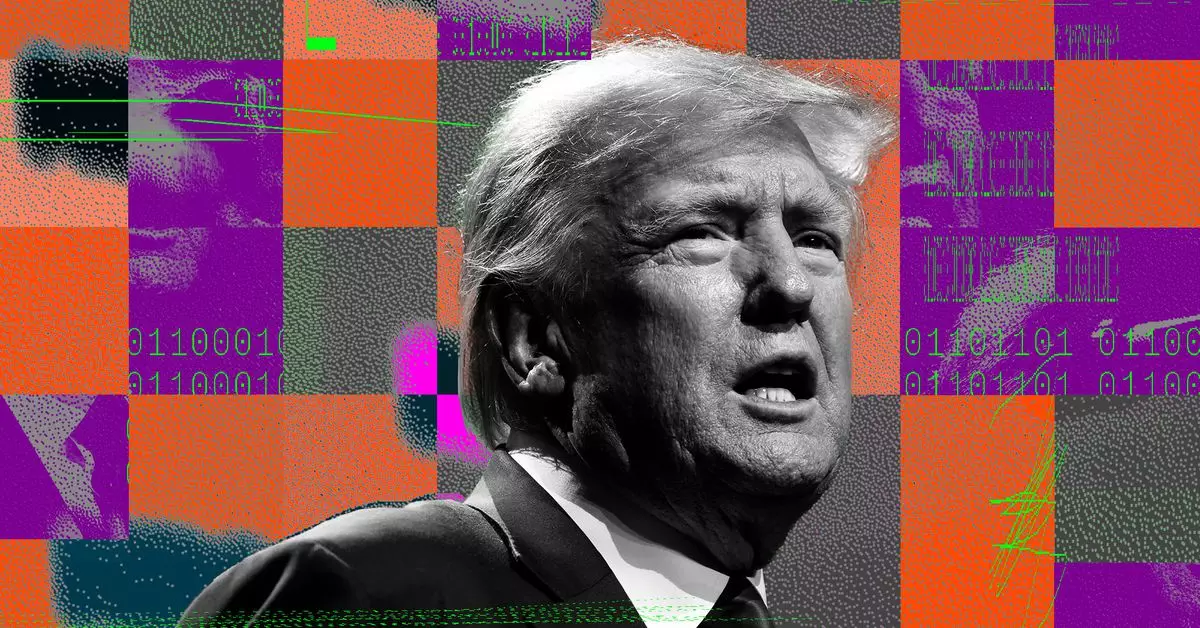As digital platforms increasingly shape public discourse and culture, TikTok has emerged as a focal point in ongoing debates about technology, national security, and free speech. Following the election of Donald Trump as President, TikTok faces imminent threats of a ban in the United States. In a move that underscores the intricate relations between technology and politics, Trump, through an amicus brief filed with the Supreme Court, is advocating for a negotiated resolution to the ban.
The Supreme Court has become a pivotal battleground in the fight over TikTok’s future. Recently, the court has agreed to examine whether the Congressional bill banning TikTok—citing national security concerns—violates the First Amendment. Trump’s request to the Supreme Court requests a delay on the enforcement of this bill until he, assuming office, can negotiate a deal. This highlights not only the contentious nature of digital governance but also the crucial role that the judiciary plays in shaping the boundaries of political and corporate power in the digital landscape.
The First Amendment challenge raises essential questions about freedom of expression and governmental authority. If the court rules in favor of TikTok, it could set a crucial precedent for tech startups and social media platforms alike, establishing grounds that could protect them from similar state interventions in the future. Trump’s motivations—both as a former president and a digital influencer—complicate his position, adding layers to the ongoing negotiation between technology and governance.
In his filing, Trump claims a unique capability to broker a deal to save TikTok, asserting that his political mandate and experience in deal-making are unparalleled. However, he provides scant details about what such a deal would entail, leaving many to wonder about the feasibility and implications of his proposed negotiations. The expectation, however, is that any resolution would necessitate significant compromises from ByteDance, TikTok’s Chinese parent company, likely requiring a divestiture of substantial ownership stakes to an American entity.
Interestingly, Trump’s entanglement with TikTok takes a personal angle. He leverages his substantial social media following to present himself as uniquely positioned to understand and advocate for the platform’s value in promoting free expression. Yet, this raises questions about transparency and the motivations behind his change in strategy. Trump previously clamored for a ban during his administration, but his campaign’s successful engagement on TikTok for the 2024 election seems to have prompted a strategic reversal, revealing the mutable nature of political allegiances amid shifting circumstances.
While Trump’s appeal signals a potential lifeline for TikTok, substantial political undercurrents remain. Bipartisan groups within Congress—comprising notable figures like Mitch McConnell—stand firm in their push for a TikTok ban. Their argument pivots on national security, portraying the platform as a potential conduit for Chinese surveillance and propaganda. This dichotomy highlights a critical tension: the coexistence of free expression and national security in a globalized, digitized world.
Furthermore, global examples such as Brazil’s temporary ban of Elon Musk’s X (formerly Twitter) underscore the precarious relationship between governments and social media platforms. The historical precedent set by such actions serves as a backdrop for this ongoing conflict—one that could either bolster or erode public trust in social media as a tool for democratic engagement.
As deliberations unfold, the fate of TikTok hinges on a confluence of political maneuvering, judicial rulings, and public perception. The upcoming Supreme Court hearing is not just about TikTok; it’s about the broader implications for digital platforms and their roles in a democracy. The dialogue surrounding TikTok encapsulates the complexities of modern governance and the consequences of governmental restriction on free speech. Should the court side with TikTok, it might fortify the principle of platform autonomy, but should it lean in favor of the ban, it could usher in a new era of stringent governmental oversight and control over digital expression. Thus, the future of TikTok remains a bellwether for larger debates on technology regulation and civil liberties in the United States and beyond.


Leave a Reply